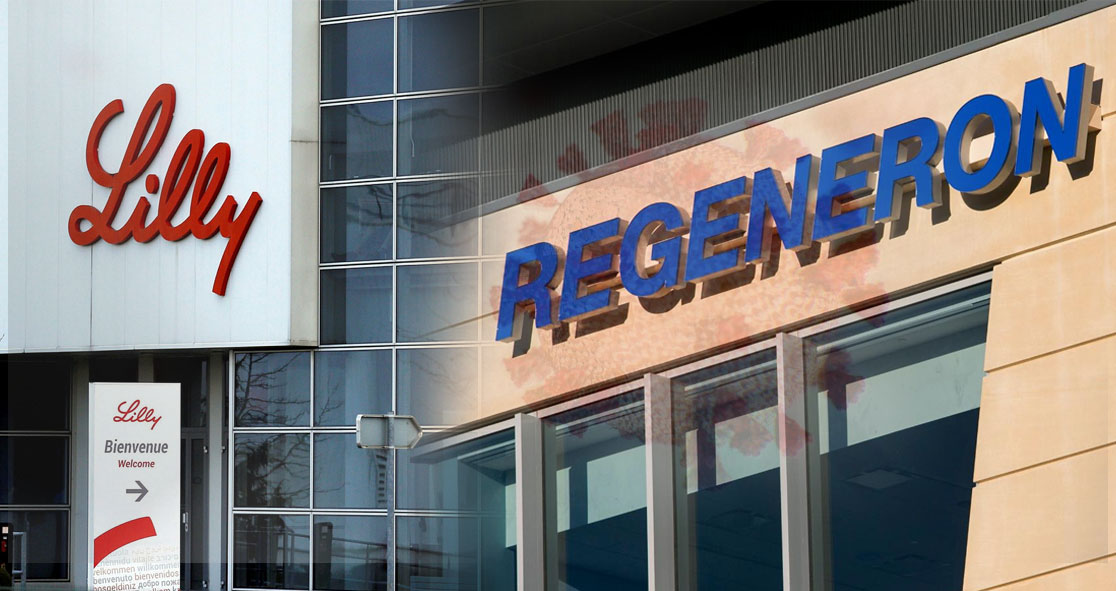As the Omicron variant grapples the United States, doctors are warning that two standard drugs that have been used to fight COVID infections are unlikely to work against the new strain, according to Medical Xpress.
The two antibody drugs, developed by Regeneron and Eli Lilly, have been used to treat early COVID-19, as they are effective at heading off severe disease and keeping patients out of the hospital.
The companies have recently warned that their laboratory testing suggests their treatments will be much less potent against Omicron, which has more than 30 mutations that make it difficult for antibodies to attack the virus.
However, Regeneron and Eli Lilly said they are working on developing new omicron-targeting antibodies, which may take several months to undergo trials.
British drugmaker GlaxoSmithKline has a third antibody, called sotrovimab, which appears to be effective against Omicron. However, it is not widely available in the U.S., as the federal government distributed only a small portion of the millions of doses it purchased.
Dr. Jonathan Li, Director, Harvard/Brigham Virology Specialty Laboratory, said, “I think there’s going to be a shortage. We’re down to one FDA-authorized monoclonal antibody” with omicron because of the reduced effectiveness of Regeneron and Lilly’s drugs.
The Centers for Disease Control and Prevention (CDC) says Delta is still responsible for more than 95% of estimated cases in the U.S. However, it says Omicron is spreading much faster than other variants and will become the dominant strain within a few weeks.
The U.S. Department of Health and Human Services (HHS) said in a statement that supply of the Glaxo’s drug is “extremely limited, and additional doses of the product will not be available until the week of January 3rd.”
The agency is now shipping 55,000 doses of sotrovimab, which is sold under the brand name Xevudy, to state health departments, with the doses arriving as early as Tuesday. It said it is distributing Glaxo’s antibody drug to states based on their levels of infections and hospitalizations.
The loss of Regeneron and Lilly’s antibody therapy could shift the focus on a pair of highly anticipated COVID antiviral pills developed by Merck and Pfizer. The drugs called molnupiravir (Merck) and Paxlovid (Pfizer) have been found effective at preventing severe COVID disease.
Paxlovid, in particular, has been found highly effective at curbing hospitalizations and deaths by nearly 90% in high-risk patients.
Virologist Andrew Pekosz at Johns Hopkins University said, “If it’s rolled out effectively this has a real big potential. That’s an immediate place where these antivirals could minimize the impact of omicron.”
Treatments are losing their efficacy against the new variant, which is a painful reminder that the coronavirus has the upper hand in the U.S., despite good vaccination rates.
Researchers are in a race to understand Omicron, including how serious it is and how it evades protection from prior infections, vaccinations, and antibody treatments.
Dr. James Cutrell of the University of Texas Southwestern Medical Center said, “We’re certainly going to see hospitalizations rise. If we have a lack of antibodies that’s certainly going to contribute to that many more patients needing to be in the hospital.”























